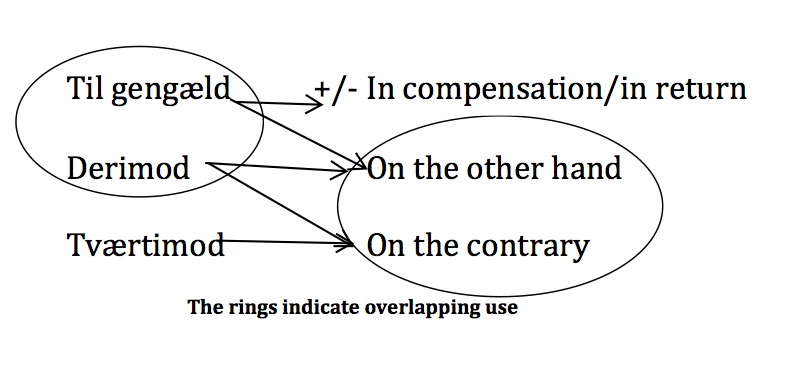Three words whose function is to underline a contrast. Two of them are overlapping - in Danish as well as in English - and unfortunately not the same two:

Til gengæld is a +/- compensation: you win some, you loose some.Jeg hjalp ham med matematik. Til gengæld hjalp han mig med engelsk. (I heelped him doing the math; in return he help me doing the English homework.)Til gengæld cannot always be translated without rephrasing: Han fik en dårlig karakter i matematik. Til gengæld fik han 12 i engelsk. (He got a bad grade in math. However, he got an A in English which somewhat balanced it out .)
Derimod is a noncompensating contrast:Peter fik gode karakterer. Hans søster var derimod dårlig i skolen.
(He got good grades. His sister, on the contrary, didn't do well in school.)
Tværtimod says: It is not like this, it is right opposite:Han var ikke træt. Tværtimod! Han dansede hele aftenen. (He wasn't tired. On the contrary! He was dancing all night)
Til gengæld or derimod is very often a question of choice: If you want to underline the connection between the two cases, you use til gengæld. If you don't see any compensation/retaliation, you use derimod. Tværtimod does not contrast two cases - it builds a contrast into one case.

Til gengæld is a +/- compensation: you win some, you loose some.
Derimod is a noncompensating contrast:
Tværtimod says: It is not like this, it is right opposite:
Til gengæld or derimod is very often a question of choice: If you want to underline the connection between the two cases, you use til gengæld. If you don't see any compensation/retaliation, you use derimod. Tværtimod does not contrast two cases - it builds a contrast into one case.